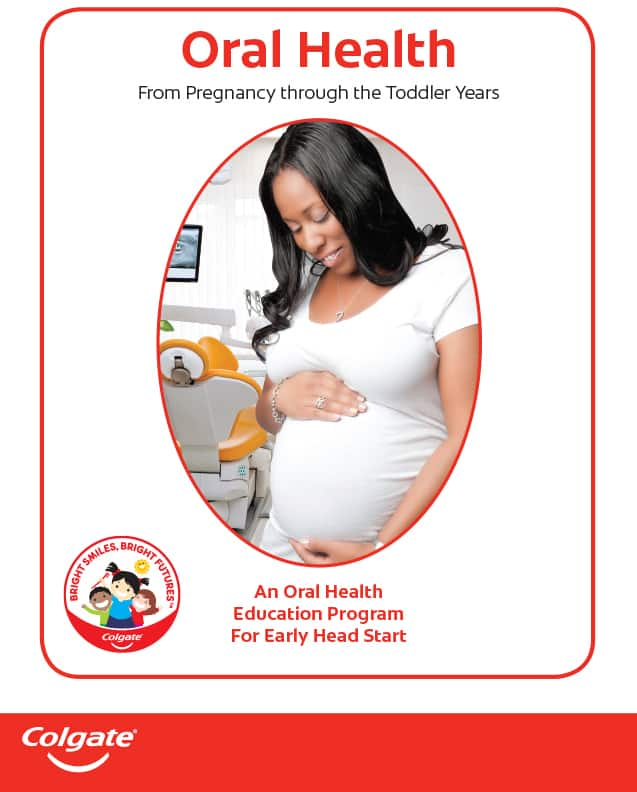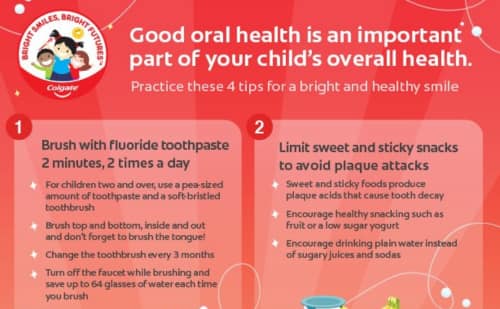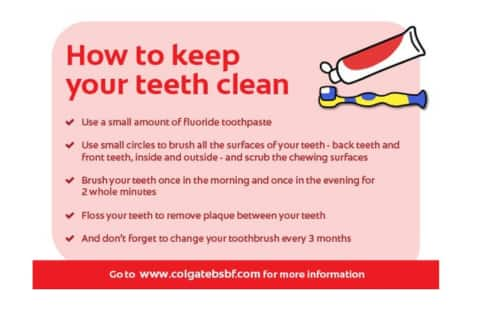-
-

FLUORIDE
What Is Stannous Fluoride Toothpaste?Discover what is Stannous Fluoride Toothpaste and its importance to prevent cavities and other oral health problems.

TEETH WHITENING
Whitening toothpaste - hydrogen peroxide vs. carbamide peroxideIf you lose one or more of your front teeth due to injury or decay, you may feel ...
-
Science & InnovationOral Health Commitment
- Oral Health Commitment
- Bright Smiles, Bright Futures
- Educational Resources
- Mobile Dental Van
- Volunteer
- ORAL HEALTH CHECK
- PRODUCT MATCH
- Oral Health and Dental Care | Colgate®
- Mission
- Oral Health Commitment
- BSBF
- Educational Resources
- Oral Health From Pregnancy Through Toddler Years

Oral Health From Pregnancy Through The Toddler Years
For children ages 0-2
-
Oral health educational resource.
-
Share and encourage children to learn healthy habits.


Related Articles
Read More












